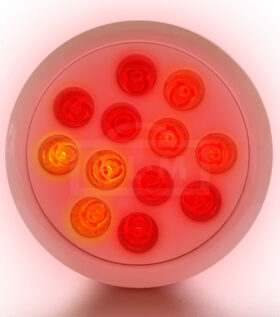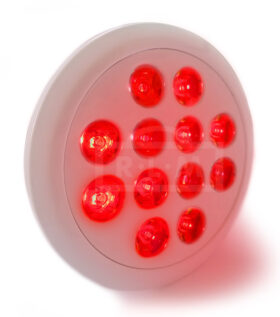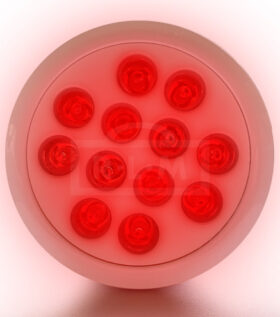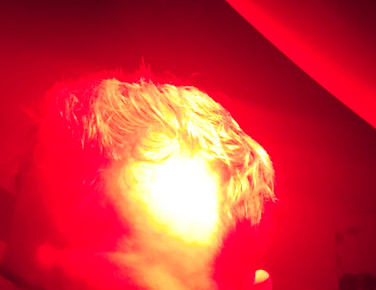Hair Loss Light Therapy
Hair loss affects both men and women of all ages, from male pattern baldness to auto-immune hair loss. It can occur for a variety of reasons.
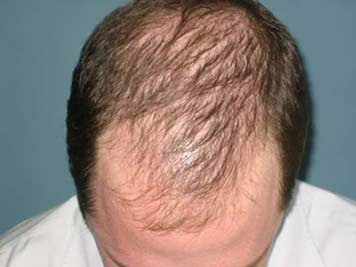
In addition, hair loss can have significant detrimental effects on a person’s confidence and sense of wellbeing. Similar to one’s hair going grey, loss of hair is an unwelcome sign of aging and physical deterioration.
The hair-metabolism link
While most experts agree that some underlying hormonal issue lies at the root of most hair loss cases, the exact link between hormones and hair loss isn’t fully understood. The old model of androgen/dihydrotestosterone (DHT) based hair follicle atrophy is now only seen as a small piece of the much larger systemic puzzle.
Hair loss theories
- DHT hypothesis
An old theory that ‘male hormones’ or androgens are solely responsible for hair loss – DHT is supposedly toxic to the hair follicle in specific ‘DHT sensitive’ areas of the scalp. This theory is backed up by observations such as men go bald a lot more often than women, and also that 5α-reductase inhibitor drugs such as propecia work to some extent in some people. Eunuchs (men who have been castrated and thus have lower levels of testosterone/DHT) are also protected from baldness in all instances.
Where this theory falls apart is that male hormones such as DHT actually facilitate hair grow in all other areas of the body. Baldness typically proceeds in men as they age and their ‘male hormones’ actually decrease (while other hormones such as oestrogen, cortisol and prolactin increase). Women and even babies suffer from ‘male pattern baldness’ in various instances. In the postnatal period after giving birth, especially when a woman is breastfeeding, hair loss occurs but DHT levels are not elevated (other hormones such as prolactin are in fact increased).
- Genetic Determinism
A subtheory of the DHT hypothesis. The idea is that certain men experience baldness due to a genetic pre-disposition to it. The fact that baldness runs in families seems to support this.
The fact that baldness can be induced in the lab in both animal and human models shows that regardless of genes, baldness is possible. Genes have no real meaning without an environmental context to be expressed within. Epigenetics however, may play a role in baldness.
- Skull expansion theory
AKA Ivory dome theory – suggests that baldness results from a lack of blood flow to those areas of the scalp. The reason for this lack of blood flow is said to be skull bone remodelling caused by DHT/androgens. Basically bone mass on top of the skull continues to grow into adulthood until is cuts off the capillaries of blood, thus starving hair follicles.
An interesting theory that still places DHT at the center of hair loss causes. If this theory were true though, DHT blocking drugs such as propecia would not work because the bone has already grown. Baldness has also been successfully reversed in men undergoing a full sex change (male -> female) therapy, which seems unlikely if the skull shape has already changed too much.
- Gravity theory
A relatively new theory which states that weight of the scalp, skull shape and subcutaneous fat all play a role in balding. Basically, as we age, the skin and subcutaneous fat in the scalp become thinner and thinner, reducing the cushioning that hair follicles have. Testosterone also reduces this cushioning, which leads to a greater pressure on hair follicles and eventually miniaturisation and balding.
This is a very similar theory to the skull expansion theory, except with thinning fat stores rather than expanding bone tissue.
Bioenergetics and hair loss
What we are beginning to understand is that most cases of hair loss, in both men and women, are linked to key energy-metabolism hormones such as T3, cortisol and prolactin. Stress and byproducts of an unhealthy diet (such as prostaglandins) also play a large part. Since energy lies at the core of all cellular function (especially hair follicle cells) and thus structure of the body, it’s clear to see how these may have a significant effect.
Properly addressing, stopping or reversing hair loss cannot be done with a reductionist approach, such as only looking at individual hormones or using specific pharmaceuticals. It requires a full lifestyle change to deal with the whole organism from a metabolic/energetic perspective.
In short, the key driver of human metabolism is energy production. We also know that biologically active light (600nm – 1000nm) affects energy production in all cells of the body, including hair follicle cells. Using light to help normalise energy production has been shown in almost all studies to have a positive effect on hair loss.
Recommended lights for hair loss:
Other ways to combat hair loss
Thyroid hormone seems like an effective medication for hair loss, both topically and orally. Due to the correlation of hypothyroidism with hair loss. A small oral dose of T3 several times a day should help stabilise the metabolism at a higher level which is protective against hair loss.
Avoiding goitrogenic foods should also be practiced to combat hair loss. Goitrogenic foods are known to be toxic the the thyroid gland, lowering metabolism if eaten frequently. Just search google for goitrogenic foods to find a list.
Higher carbohydrate diets are better for preventing hair loss, due to their superior effects on mitochondrial/oxidative metabolism. Carbohydrates are also essential for activating thyroid hormone in the liver and removing oestrogen from the body. Conversely, high fat diets lead to greater hair loss, due to lowering systemic co2 and ATP levels (co2 relaxes blood vessels, helps eliminate ammonia, and increases metabolic efficiency) and raising oestrogen, cortisol and prolactin levels.
Avoiding polyunsaturated fats is advisable for anyone wishing to halt hair loss, as nearly all of them break down into hair-toxic prostaglandins such as Prostaglandin D2 which is well known to completely inhibit hair growth. This means avoiding most liquid oils, margarines, nuts and seeds etc.
Progesterone is another hormone which has been shown to be highly protective against hair loss. Using a progesterone cream topically at the site of hair loss should help slow the loss.






